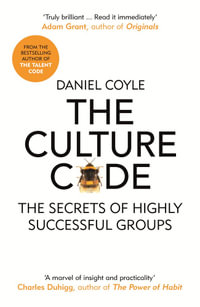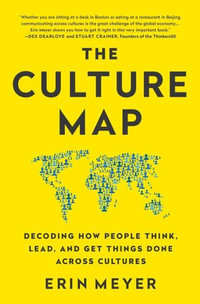| Authors of Original Articles | |
| Foreword | |
| Acknowledgments | |
| Volume Introduction | |
| Interdisciplinary Perspectives on Well-Being | |
| Overview Essay | p. 1 |
| Alternative Conceptions of the Economic Realm | p. 15 |
| The Meaning, Nature, and Source of Value in Economics | p. 18 |
| Human Values and Economic Behavior: A Model of Moral Economy | p. 22 |
| Material Well-Being and Human Well-Being | p. 26 |
| The Joyless Market Economy | p. 29 |
| Economic Institutions and the Satisfaction of Human Needs | p. 33 |
| The Ethical Limitations of the Market | p. 36 |
| Human Well-Being and the Natural World and Nature, Intrinsic Value, and Human Well-Being | p. 40 |
| Taking Ethics Seriously: Economics and Contemporary Moral Philosophy | p. 44 |
| Utility and Welfare I: The History of Economic Thought | |
| Overview Essay | p. 49 |
| Adam Smith on Justice and Distribution in Commercial Societies | p. 58 |
| Jeremy Bentham | p. 61 |
| Pure versus Eclectic Utilitarianism: The Writings of Bastiat and Mill | p. 64 |
| Philosophy and Economics in the Writings of Karl Marx | p. 67 |
| The Neoclassics: Utility | p. 70 |
| Jevons, Marshall, and the Utilitarian Tradition | p. 74 |
| Thorstein Veblen | p. 77 |
| Utility and Welfare II: Modern Economic Alternatives | |
| Overview Essay | p. 81 |
| Were the Ordinalists Wrong About Welfare Economics? | p. 93 |
| Keynes's Political Philosophy | p. 97 |
| Welfare Economics | p. 100 |
| The Invisible Hand and Modern Welfare Economics | p. 103 |
| Social Choice: The Science of the Impossible? | p. 107 |
| Some Nonwelfaristic Issues in Welfare Economics | p. 110 |
| Game and Decision-Theoretic Models in Ethics | p. 113 |
| A New Welfare Theory | p. 116 |
| Applied Welfare Economics: Externalities, Valuation, and Cost-Benefit Analysis | |
| Overview Essay | p. 121 |
| Beyond the Dark Clouds: Pigou and Coase on Social Cost | p. 132 |
| On Lemmings and Other Acquisitive Animals: Propositions on Consumption | p. 135 |
| Choices without Prices without Apologies | p. 137 |
| "Ask a Silly Question...": Contingent Valuation of Natural Resource Damages | p. 141 |
| Valuing the Environment through Contingent Valuation | p. 144 |
| Regulating the Electricity Supply Industry by Valuing Environmental Effects: How Much Is the Emperor Wearing? | p. 147 |
| The Moral Dimension of Cost-Benefit Analysis, with Particular Reference to the Ozone Problem | p. 150 |
| Intergenerational Transfers and the Social Discount Rate | p. 154 |
| Cost-Benefit Analysis, Safety, and Environmental Quality | p. 157 |
| Selections from Benefit, Cost, and Beyond | p. 161 |
| Economics and the Good, I: Individuals | |
| Overview Essay | p. 165 |
| Who Is Happy? | p. 174 |
| New Challenges to the Rationality Assumption | p. 177 |
| Frames of Reference and Quality of Life | p. 180 |
| Against Parsimony: Three Easy Ways of Complicating Some Categories of Economic Discourse | p. 184 |
| Should Preferences Count? | p. 188 |
| Value, Desire, and Quality of Life | p. 191 |
| Me and My Life | p. 194 |
| Amartya Sen's Contributions to Understanding Personal Welfare | p. 197 |
| Economics and the Good, II: Community | |
| Overview Essay | p. 203 |
| The Prosperous Community: Social Capital and Public Life | p. 211 |
| Social Capital in the Creation of Human Capital | p. 213 |
| Winner-Take-All Markets and The Growth of Winner-Take-All-Markets | p. 216 |
| Gang Behavior, Law Enforcement, and Community Values | p. 220 |
| Institutions and Morale: The Crowding-Out Effect | p. 223 |
| Return of the Citizen: A Survey of Recent Work on Citizenship Theory | p. 227 |
| Trust as a Commodity | p. 231 |
| Amending the Economist's "Rational Egoist" Model to Include Moral Values and Norms | p. 234 |
| Economics and the Good, III: Society | |
| Overview Essay | p. 239 |
| Welfare, Resources, and Capabilities: A Review of Inequality Reexamined by Amartya Sen | p. 249 |
| Distributive Justice, Welfare Economics, and the Theory of Fairness | p. 252 |
| Complex Equality | p. 255 |
| Equality of Talent | p. 258 |
| Equal Opportunity or Equal Social Outcome? | p. 262 |
| Coherence Against the Pareto Principle and Equality | p. 266 |
| Distributive Justice and Desirable Ends of Economic Activity | p. 269 |
| Aristotelian Social Democracy | p. 273 |
| Social Unity and Primary Goods | p. 276 |
| National Development: From Basic Needs to the Welfare State | |
| Overview Essay | p. 281 |
| The Evolution of Development Thought | p. 292 |
| Positive Freedom, Markets, and the Welfare State | p. 297 |
| Functioning and Capability: The Foundations of Sen's and Nussbaum's Development Ethic, Parts 1 and 2 | p. 301 |
| Connecting, Extending, Reversing: Development from a Gender Perspective | p. 308 |
| Inequality and Growth Reconsidered: Lessons from East Asia | p. 312 |
| Economic Theory and the Welfare State: A Survey and Interpretation | p. 316 |
| Welfare | p. 320 |
| What Is Distinctive About Swedish Social Democratic Ideology? | p. 324 |
| The Three Political Economies of the Welfare State | p. 329 |
| Critiques of National Income Accounting and GNP | |
| Overview Essay | p. 335 |
| The Concept of National Income | p. 342 |
| Output | p. 347 |
| Divergences of Measurement and Theory and Some Implications for Economic Policy | p. 351 |
| Selections from Counting for Nothing: What Men Value and What Women Are Worth | p. 355 |
| Measuring Household Activities: Some International Comparisons | p. 358 |
| National Income Accounts and the Environment | p. 361 |
| Environmental and Natural Resource Accounting: Where to Begin? | p. 365 |
| The Indicators Crisis | p. 369 |
| Alternatives to Gross National Product: A Critical Survey | |
| Essay | p. 373 |
| References | p. 403 |
| Subject Index | p. 407 |
| Name Index | p. 423 |
| Table of Contents provided by Blackwell. All Rights Reserved. |

























